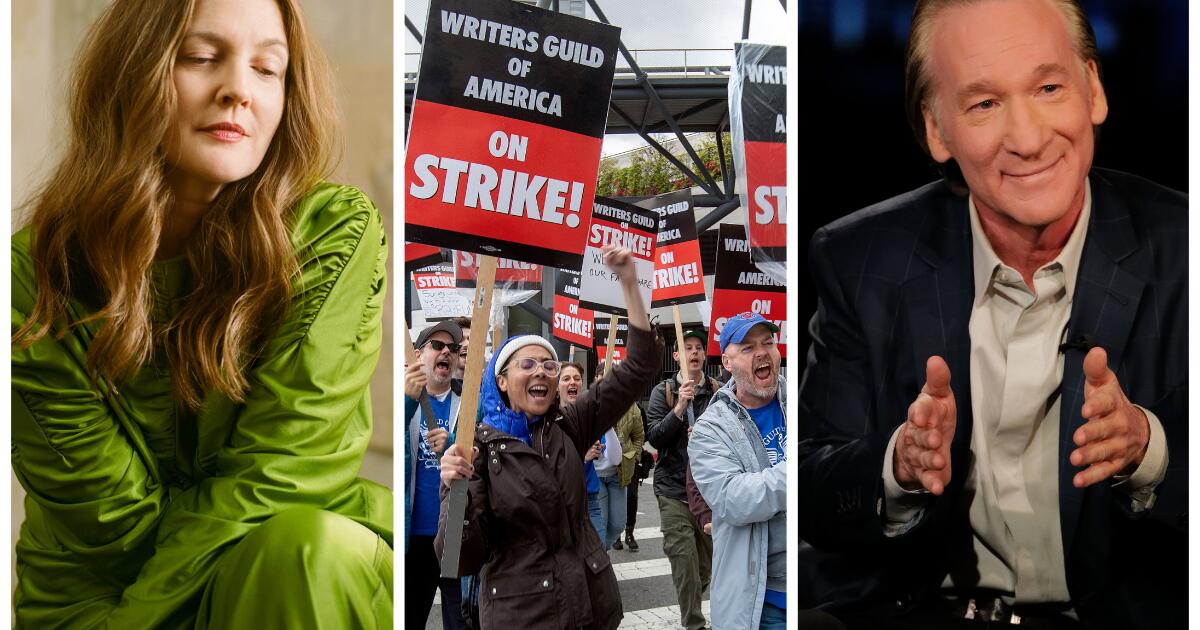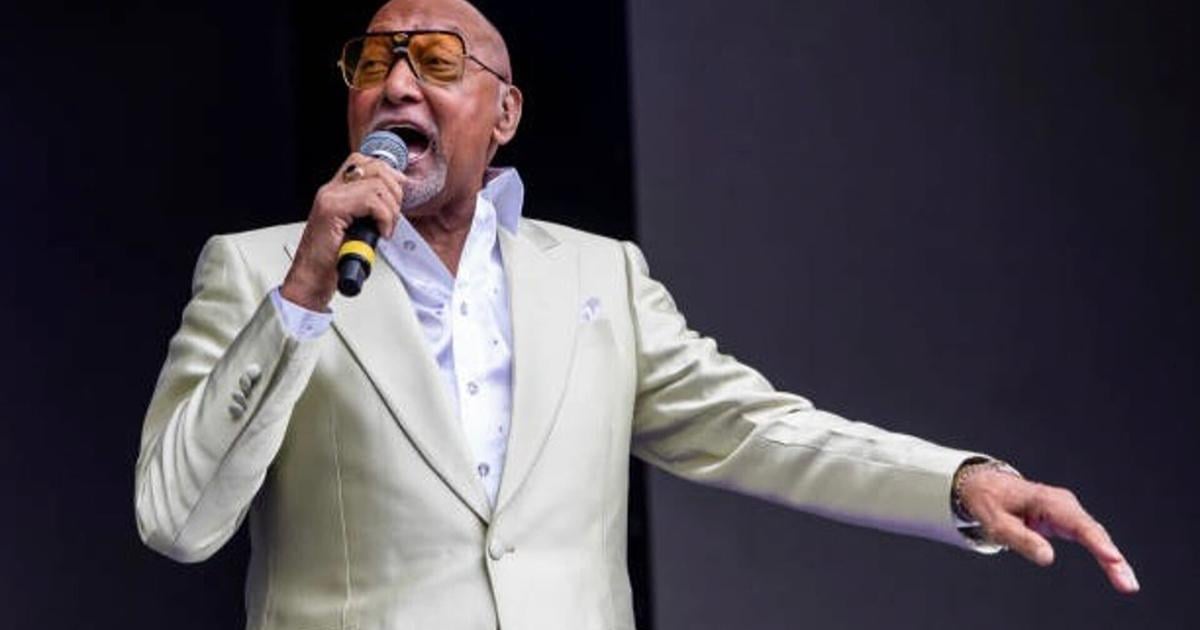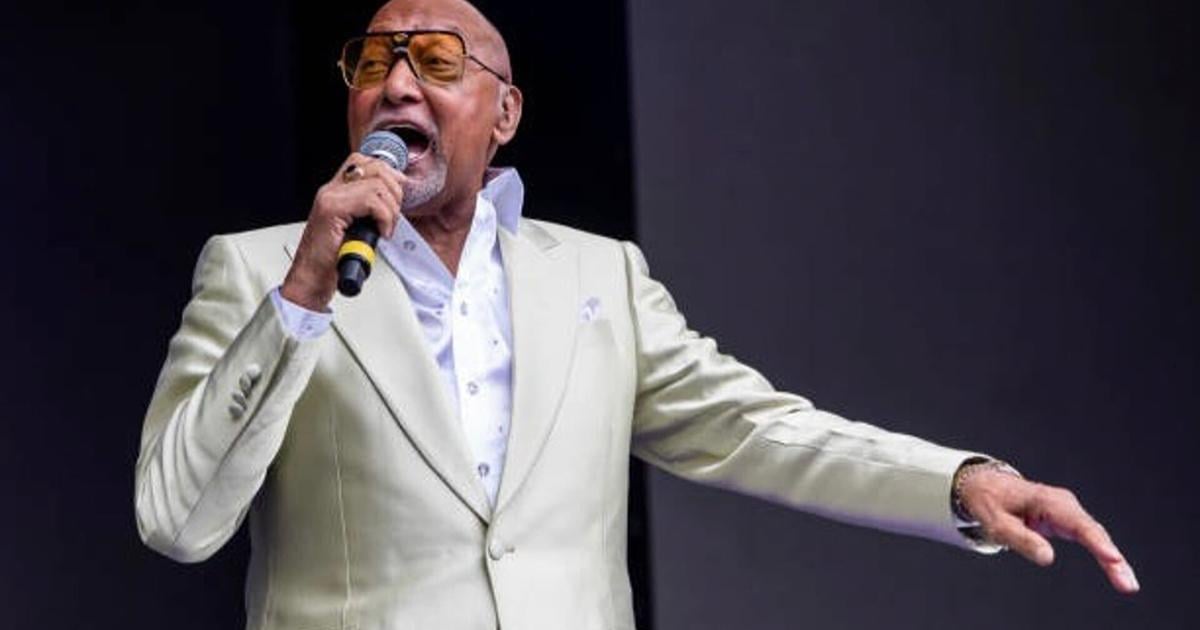Last week, the Writers Guild of America was threatening to pillory, and did in fact picket, Drew Barrymore.
This week, the guild should be sending her flowers and some very nice fruit baskets.
In just seven days, Barrymore highlighted the new rules and high stakes of this year’s 4½-months-long writers’ strike — and wound up handing the WGA a very powerful weapon just in time for what one hopes will be a near-final round of talks with the Alliance of Motion Picture and Television Producers, which represents the studios, this week.
To recap: On Sept. 10, Barrymore announced that she would be bringing back her eponymous talk show without writers, something many talk shows did during the 2007-08 writers’ strike. After receiving an avalanche of criticism, she posted a tearful video explaining her decision and then, when the criticism only grew, reversed it.
On Sunday, she apologized for her earlier stance and announced that she would not be bringing the show back until the strike was resolved after all.
Jennifer Hudson, the producers of “The Talk” and even — can it be true? — cranky old “writers should be grateful” Bill Maher almost immediately followed suit, with Maher, predictably, making a statement that seemed to imply that his decision would help end the strike.
It might, though not Maher’s reversal specifically. A collective refusal of talk show hosts to tape new episodes is one more sign of the entertainment workers of the world uniting.
Which does not bode well for the AMPTP’s “we’ll just starve ‘em out” strategy.
The sight of Barrymore, long beloved and oft-forgiven, being immediately and irrefutably damned for suggesting she could, and should, produce her show without writers sent a chill throughout the industry.
If she couldn’t get away with doing what Conan O’Brien, Stephen Colbert and others did in 2008, this is clearly not your father’s writers’ strike.
Which is something the AMPTP should have known going in and finally needs to acknowledge. As in, this instant.
Even people inside the group have reportedly complained that AMPTP President Carol Lombardini appears too deeply committed to using a 30-year-old playbook, with its emphasis on incremental offers, followed by weeks- (or months-) long pauses in negotiations.
Barrymore and, by extension, Maher, got shut down in a matter of days.
Far from languishing after four-plus months on strike as the AMPTP hoped, writers appear even more united, resolved and, with the aid of social media, ready to call out anyone they feel is trying to weaken their position. Immediately. And loudly.
What’s next? “The View,” which has already been the target of pickets at ABC Studios in New York; and “Dancing With the Stars,” whose return amid the Hollywood work stoppage has been questioned by pro dancer and 17-season “DWTS” veteran Cheryl Burke. (To say nothing of its diminished definition of “Stars” as a result of the SAG-AFTRA strike.)
Even combined, the viewership of “The Drew Barrymore Show,” “The Jennifer Hudson Show,” “The Talk” and “Real Time With Bill Maher” may not be large enough to pose a financial threat to either their studios or the AMPTP as a whole. But the viewership of “The View” and “Dancing With the Stars” certainly is.
More important, perhaps, are the optics.
For the WGA, Barrymore’s 180, and the ensuing fall of daytime dominoes, could not have happened at a better time. The union will enter this round of negotiations not, as the AMPTP might have expected, exhausted and panicked. Instead, the writers are fresh from victory, their fighting spirit revived.
How many times does this have to happen before the AMPTP realizes that the only way out is to negotiate in good faith on all the points the union has clearly prioritized? Not just wages but also writers’ rooms, residuals and transparency in streaming?
How many times do the studios have to be reminded that this time around, the stakes are higher and the mood of the country is different?
When the last writers’ strike occurred, it was singular. This time around, actors are also walking the picket lines, the United Auto Workers have taken on the Big Three carmakers, UPS workers just won big, there’s a pro-union president in office, a pro-union sentiment among voters, and the California Legislature recently passed legislation (which awaits Gov. Gavin Newsom’s signature) that would entitle strikers to unemployment benefits.
In 2007-08, social media was still in its infancy; union members could be rallied by email or via, well, rallies, but compared to the lightning speed with which statements, reactions and images can now be shared, even outrage lumbered.
Most important, the entertainment industry has changed in ways that are obvious to everyone. In 2007-08, digital media was, in some ways, unknown territory, which allowed the studios to offer, and the WGA to accept, what was essentially a foot in the door.
Newsletter
Subscriber Exclusive Alert
If you’re an L.A. Times subscriber, you can sign up to get alerts about early or entirely exclusive content.
You may occasionally receive promotional content from the Los Angeles Times.
Now, everyone and her sister knows that streamers, led by Netflix, are trying to take over the world. And you don’t try to take over the world unless you think you have the resources to do it. So pleading poverty, or a limited understanding of how this streaming thing is going to work, just doesn’t wash. Not with the writers, not with the actors, not with the general public.
In this strike, walking the fine line of technicalities — talk show hosts are not striking, reality TV is not unionized — has become increasingly perilous. Everyone needs writers, whether they like it, or acknowledge it, or not.
The writers have made it clear that they are not interested in half-measures, explanations, justifications, apologies or even tears.
They just want a contract they can live with, and it’s beyond time that the AMPTP gave it to them.





